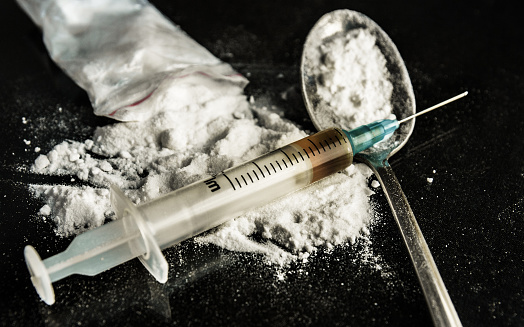Are you or someone you know struggling with heroin addiction? Do you feel there’s no way out and that your life is spiralling? You’re not alone. Heroin addiction has become an epidemic in our society, affecting individuals from all walks of life. But don’t lose hope! Drug Rehabilitation centres in Pune are here to help break the chains of addiction and guide you towards a healthier, more fulfilling life. In this blog post, we’ll explore how rehabilitation centres can assist heroin addicts on their journey towards recovery and provide them with the necessary tools for success. So let’s dive in!
Introduction to Rehabilitation Centers
“It’s no secret that heroin addiction is a severe problem in India. People die daily from overdoses, and this devastating disease tears family apart. However, there is hope for those struggling with heroin addiction. Drug Rehabilitation centre in Pune provides a safe and structured environment for people to detox and begin recovery.
Rehabilitation centres offer 24-hour medical care and support, which is essential for people going through withdrawal. The staff at rehab centres are trained to deal with the unique challenges of addiction and can provide resources and guidance to help patients on their road to recovery.
In addition to medical care, rehabilitation centres offer therapy and counselling services. These services are essential for helping patients understand their addiction and develop coping mechanisms to deal with triggers and cravings. Therapy can also help patients address any underlying mental health issues contributing to their addiction.
If you or someone you love is struggling with heroin addiction, don’t hesitate to ask for help. There are many resources available to assist you in finding the right rehabilitation centre for your needs.”
How Rehabilitation Centers Help Heroin Addicts
Rehabs in Pune help heroin addicts by providing them a safe and structured environment to detox and recover. These centres offer comprehensive treatment programs that address addiction’s physical, mental, and emotional aspects. In addition to helping addicts detoxify from heroin, rehabilitation centres also provide counselling and therapy to help them overcome the underlying causes of their addiction. This holistic approach to treatment gives addicts the best chance of achieving long-term sobriety.
Treatment Techniques Used in Rehabilitation Centers
There are a variety of treatment techniques used in rehabilitation centres that help heroin addicts break the chains of addiction. These techniques include detoxification, behavioural therapy, and medication-assisted treatment.
Detoxification is the first step in treatment and is designed to rid the body of the toxic substances that have built up during addiction. This process can be uncomfortable and even dangerous, so it is essential to be under medical supervision while detoxing.
Behavioural therapy is another essential part of treatment. This type of therapy helps patients identify the triggers that lead to drug use and develop coping mechanisms to deal with these triggers.
Medication-assisted treatment is often used in conjunction with behavioural therapy. This type of treatment uses medications to help reduce cravings and withdrawal symptoms. Medication-assisted treatment can be essential in assisting people in staying sober following treatment.
Benefits of Rehabilitation Centers for Heroin Addicts
Rehabilitation centres offer hope for heroin addicts struggling to overcome their addiction. These centres provide a safe and supportive environment where addicts can detoxify from the drug, receive counselling and therapy, and learn new coping and life skills.
The benefits of rehabilitation centres include:
-A safe and supportive environment to detox from heroin
-Counseling and therapy to address the underlying causes of addiction
-Skills training to help recovering addicts cope with triggers and stressors
-A community of peers who are also in recovery
-Access to resources and support for long-term sobriety
Challenges Faced by Drug Addicts in Recovery
One of the most difficult challenges faced by drug addicts in recovery is remaining abstinent from drugs and alcohol. For many people addicted to drugs, their addiction is not just a physical dependence on the substance but also mental and emotional support. This can make it extremely difficult to stay away from drugs, even when they are trying to recover.
Another challenge faced by drug addicts in recovery is dealing with triggers. Triggers are anything that can cause someone to want to use drugs again. They can be things like seeing someone using drugs, being where drugs were used in the past, or even just thinking about using drugs again. Dealing with triggers can be very difficult, but it must be done to stay sober.
Lastly, another challenge faced by drug addicts in recovery is rebuilding their life. Addiction often destroys relationships, careers, and finances. So once someone gets sober, they usually have to start from scratch. This can be an incredibly daunting task, but it is possible with hard work and support from others.
Post Recovery Care and Support Services Offered by Rehabilitation Centers
If you or someone you know is struggling with heroin addiction, there is hope. Rehabilitation centres offer post-recovery care and support services to help people in early recovery stay on track.
These services may include individual and group counselling, 12-step meetings, case management, and more. These services aim to help people in early recovery develop a solid foundation for long-term sobriety.
If you are considering entering a rehabilitation centre for treatment, ask about the post-recovery care and support services they offer. These services can make all the difference in your journey to recovery.
Conclusion
In summary, the impact of heroin addiction on individuals and society as a whole is immense. Rehabilitation centres are essential for providing help to those suffering from addiction. With the proper care and support, addicts can have access to resources that will enable them to break free from their habits. A combination of medical treatments, therapy sessions, lifestyle changes, and social support can make all the difference in helping people lead productive lives without resorting to drugs or alcohol.

Leave a Reply